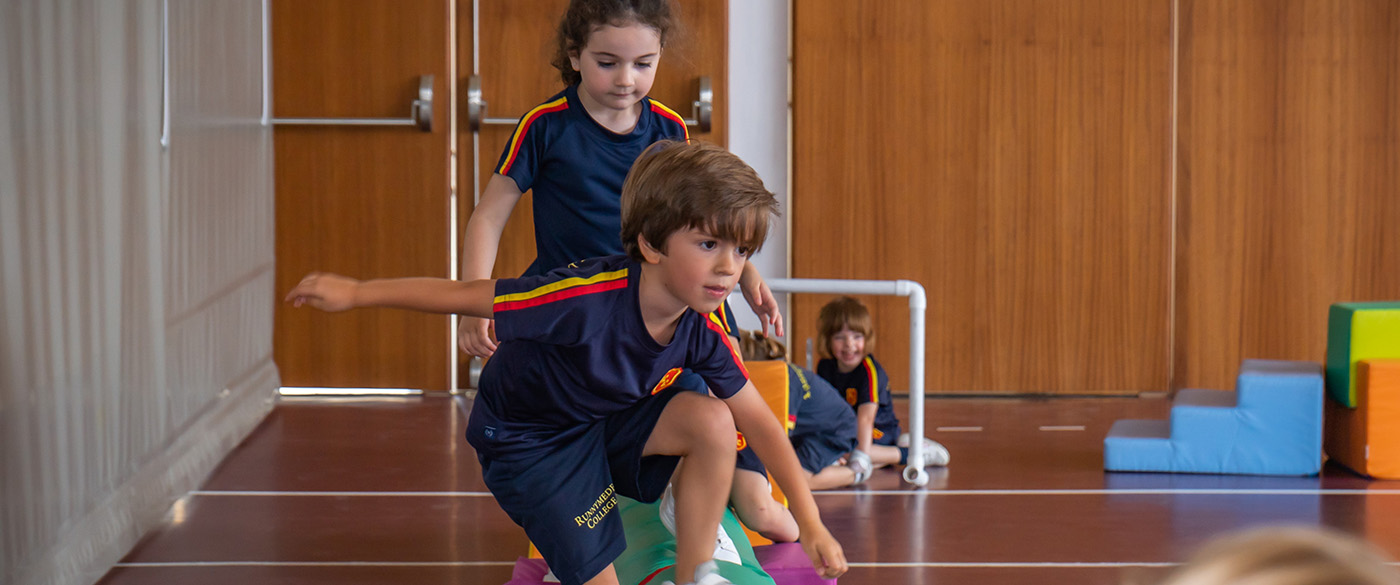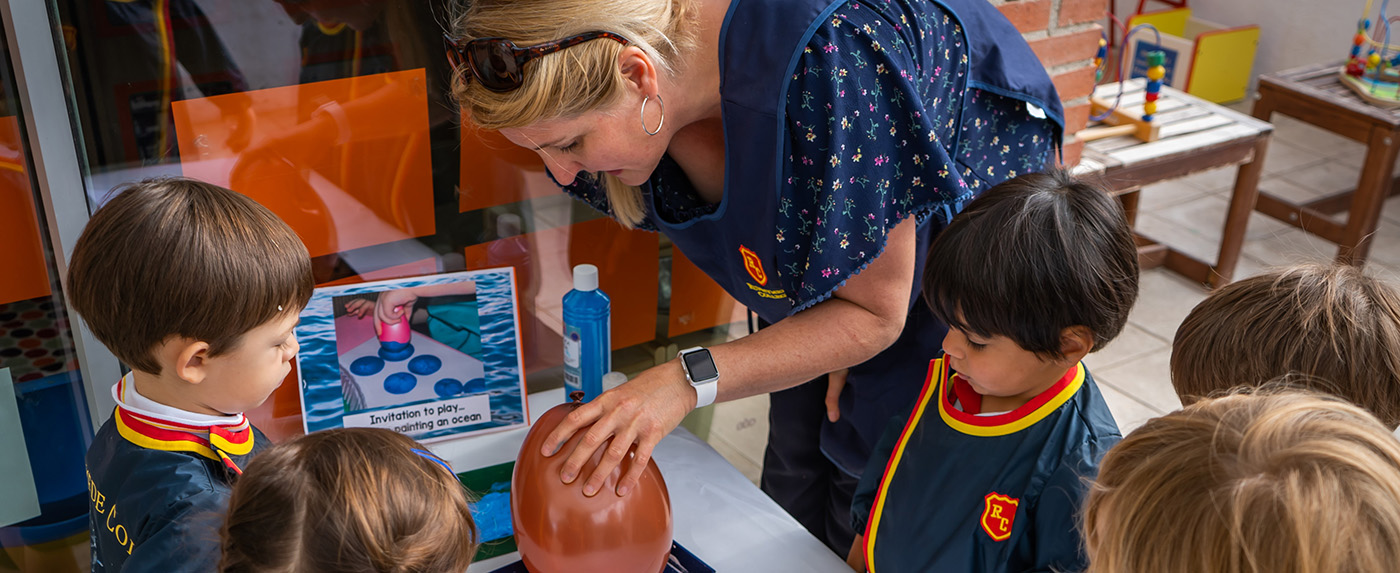ACADEMIC
The Foundation Stage
The Foundation Stage is the exciting place where children begin their learning journey at Runnymede College. We welcome children from 2 years old to learn with us through play, songs and engaging activities, led by caring, knowledgable staff, in a stimulating, English-language environment.
The curriculum is holistic, and delivered through topics chosen to capture the children’s attention. If for example we are reading ‘The Gruffalo’, the children might cook ‘Gruffalo crumble’, go on a listening walk through the natural area, learn about different animals and act out the story. We also include cultural celebrations and festivals of significance to the members of our learning community. In the Foundation Stage we find learning opportunities in everything around us!.
Early Years Foundation Stage Sports
Learning outside the classroom is important, it gives the children the opportunity to work on a larger scale and participate in different types of activities. As well as outdoor classroom areas and a large playground, we have a lovely natural area where the children can plant seeds, dig, build and play. The teaching team get to know the children very well and tailor their approach to each individual’s specific needs. We recognise that no two children are the same and develop at different rates. For many children, this may be their first time away form home and/or in an English language environment: We are very sensitive to the needs of the children and keep in close contact with parents to ensure that all children feel safe, secure and happy.
The Curriculum
We use the Early Years Foundation Stage Framework as used in England and Wales. There are 7 interlinked areas of learning, divided into 3 prime areas and 4 specific areas.
THE PRIME AREAS

Personal, Social and Emotional Development
This area underpins everything we do in school. We help the children to develop healthy relationships, to manage their feelings and behaviour and to develop self confidence and self-awareness. This includes helping them to separate from their parents in the morning, learning to share and recognising how their actions affect others.

Communication and Language
This area is all about the children’s listening, attention, understanding and speaking. We speak with the children all day long: Read stories, ask questions, join in with play, narrate what the children are doing and model good language. Though we value other languages that the children speak, as with the British Curriculum we assess the children on this area in English.

Physical Development
Moving and handling is about developing fine and gross motor skills. We help the children to acquire the strength and coordination required to hold a pencil correctly, or balance and play games. Health and self-care includes developing an awareness of how to keep healthy, learning about diet, exercise and keeping safe, It includes encouraging children to be independent with eating and personal hygiene.

The Specific Areas

Literacy
We share a wealth of books with the children to develop a love of stories and rhymes and provide them with a range of materials to experiment with mark-making. As the children become ready we begin to introduce phonics, following the Read, Write Inc phonics programme, which is taught daily in Reception. In the Reception year, the children can begin their journey to reading and writing with more independence.

Mathematics
As well as learning number names and counting objects, we learn a lot about of everyday mathematical skills and concepts through playing with sand and water, by building towers, and by sharing out fruit at snack time. When we bake in school we make very good use of our counting and measuring skills.

Understanding the world
We learn about people and communities, beginning with our families and friends. What makes us similar and what makes each of us special.We learn about the world we live in. We could learn about anything from arctic animals, to celebrations to space to dinosaurs depending on the topic we are covering.

Expressive arts and design
Children sing songs, make music and dance, and experiment with ways of changing them. They safely use and explore a variety of materials, tools and techniques, experimenting with colour, design, texture, form and function. They represent their own ideas, thoughts and feelings through design and technology, art, music, dance, role play and stories.



